Diwali and Dhanteras are synonymous with every Hindu in India and across the world. These two are quite possibly the biggest festivals in the Hindu calendar and this tradition has been followed for centuries. Every year, according to the Hindu lunisolar months, people adorn their homes and neighborhoods with vibrant and attractive lighting that makes the entire area so inviting to look at. This is only part of what makes these occasions so beloved. The significance behind Dipawali and Dhanteras is absolutely massive and are a huge part of Hinduism. Join us as we explore the importance of these two incredibly joyous occasions.
Diwali – A Cultural Phenomenon
Diwali is essentially a massive cultural event, with people celebrating it in different ways, the streets are replete with elaborate lights, and people buy new clothes along with cleaning their homes to invite Lakshmi into their abode. Another custom of this festival is that women decorate the entry of their homes with geometrical patterns called Rangoli. Even the origins of this festival are different across India. While North India celebrates the return of Lord Rama and Sita’s return to Ayodhya, South India celebrates the victory of Lord Krishna over Naraksura. Western India’s reason for celebrating Diwali is to commemorate Lord Vishnu sending the Demon king Bali to rule the nether world. Diwali is celebrated by many, even other communities. For the Sikhs, Diwali observes the struggle for freedom. It celebrates the victory of the sixth guru, Guru Hargobind, from Emperor Jahangir, who had imprisoned him and 52 other princes with him, in 1619. To the Jains, it has a whole different meaning. For them, Diwali is the day when the last of the Jain Tirthankaras, Lord Mahavira, attained nirvana, also known as complete knowledge and enlightenment. Lord Mahavira established the dharma followed by the Jains worldwide.
The Victory of Good Over Evil
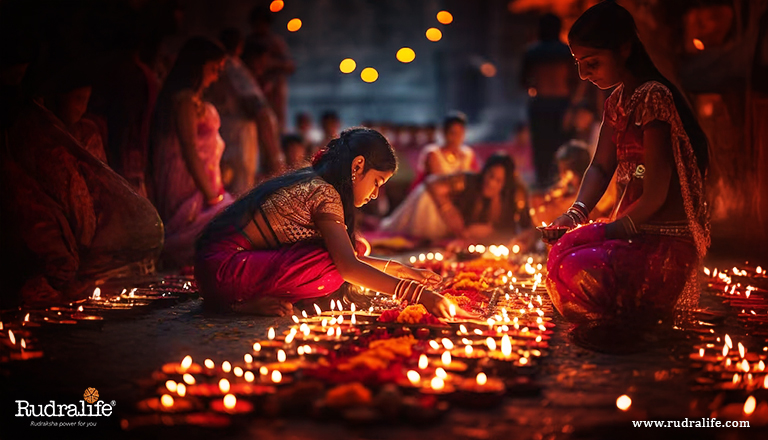
Diwali is considered by many to be the biggest and most important festival in the Hindu calendar, and for good reason. The celebration of Diwali is seen as the spiritual victory of light over darkness, good over evil, and knowledge over ignorance and is generally celebrated during the months of Ashvin or Kartika. The symbolism of light for this occasion is why Diwali is called the festival of lights. Hindu scriptures proclaim this to be a deeply auspicious time, which is why the time of Dipawali is marked by people trying to become more spiritually attuned, something which can be achieved by Rudraksha beads like the 7 Mukhi Rudraksha and the 7 Mukhi Cashbox.
Dhanteras – Divine. Sacred. Auspicious.
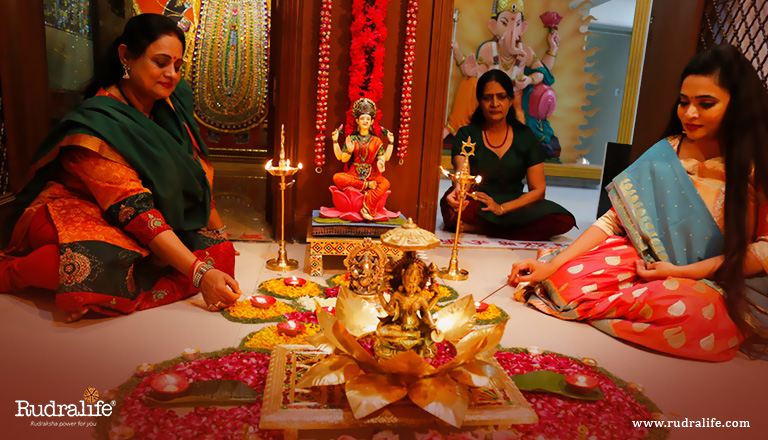
Dhanteras, also called Dhantrayodashi, marks the beginning of the Diwali festivities. The festival of Dhanteras is generally celebrated in the month of Kartik and is celebrated with great enthusiasm by everyone. The origins of this festival can be traced back to the Samudra Manthan or the churning of the milk ocean which is described as a huge event in Hindu folklore. The churning of this ocean led to the emergence of Goddess Lakshmi herself, who’s also known as the Goddess of wealth and fortune. Other deities like Lord Kubera and Lord Dhanvantari are also worshiped during Dhanteras. It’s even believed that this is an auspicious time for people to buy new goods, especially gold and silver. This is why so many people buy the 7 Mukhi Cashbox during this time since it attracts wealth and fortune.
Diwali & Dhanteras – Maa Lakshmi’s Blessings
While Diwali is celebrated with several rituals like lighting diyas, creating Rangoli artwork, bursting firecrackers, decorating homes, preparing delectable feasts, worshiping Devi Lakshmi, and even exchanging gifts, these gifts could be purely materialistic in nature or even something spiritual like a 7 Mukhi Rudraksha since it’s represented by Goddess Lakshmi. Dhanteras, while similarly celebrated, isn’t the same as Dipawali. Dhanteras rituals involve performing Lakshmi Puja, reciting the sacred Dhanteras Katha, and lighting oil lamps to name a few. Another thing to note is that Dhanteras is also known for being the time when people buy specific items like copper utensils, brass elephants, Kuber Yantra, and even brooms because they’re deemed lucky and attract Devi Lakshmi’s blessings.
Conclusion
The time of Dhanteras to Lakshmi Puja is a deeply spiritual and auspicious time for Hindu devotees. Millions, if not billions of devotees pray to Devi Lakshmi and other deities to seek blessings and attain prosperity and fortune. It’s a focal part of Hinduism. Channel the sacred energy of this sacred time with Rudralife! Our range of Rudraksha beads along with our team of experts can guide you on your spiritual journey.


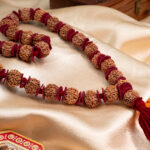
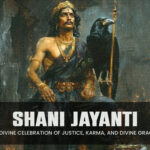
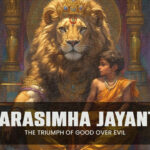
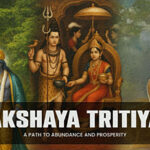

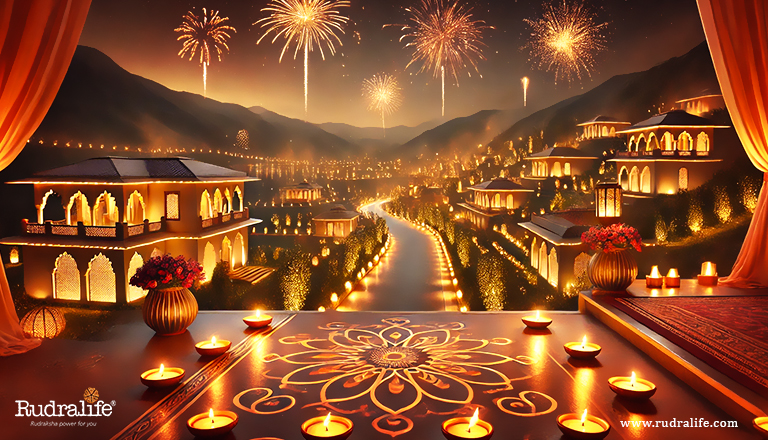
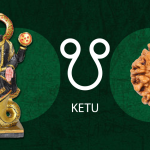

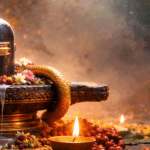
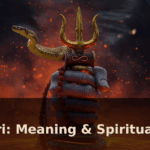

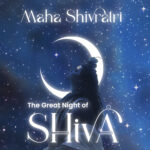
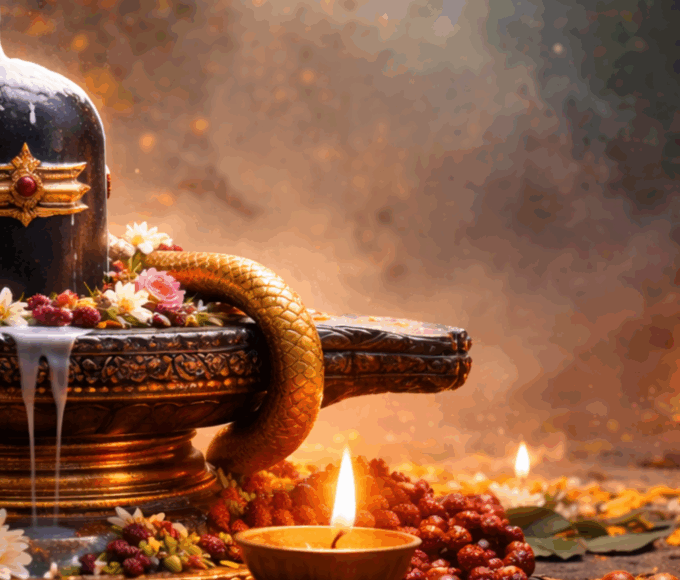
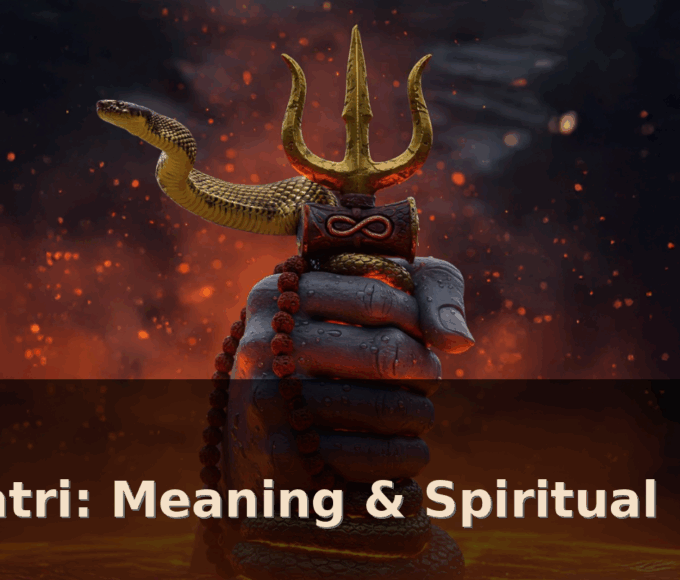
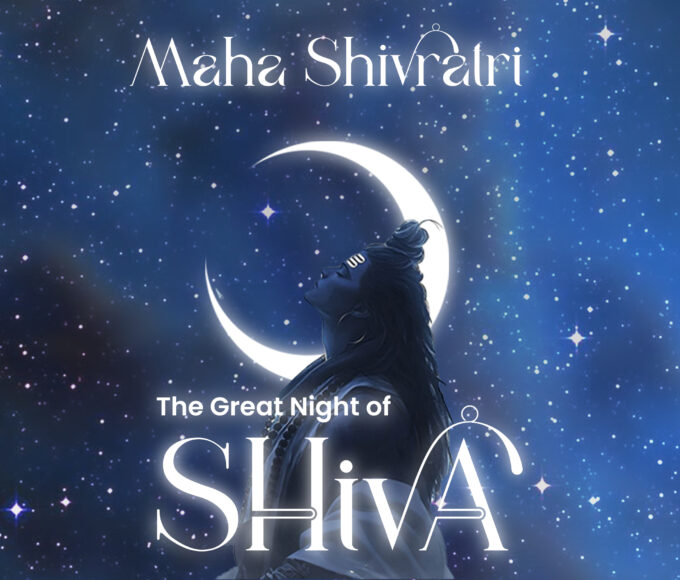
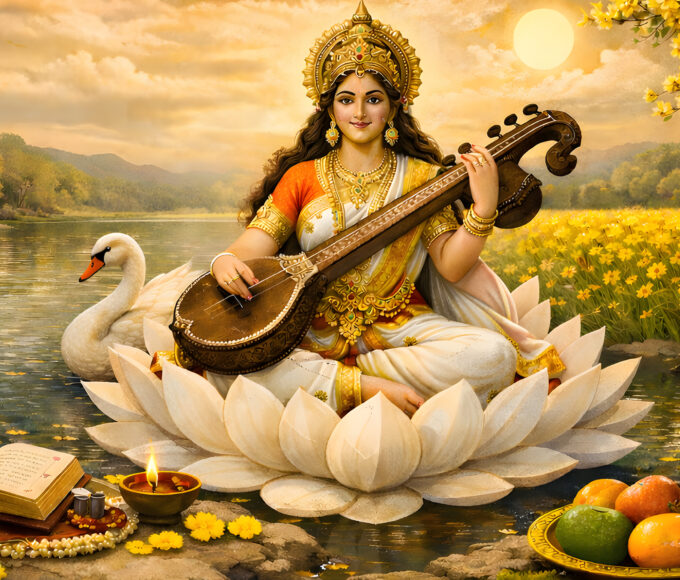
Leave a comment